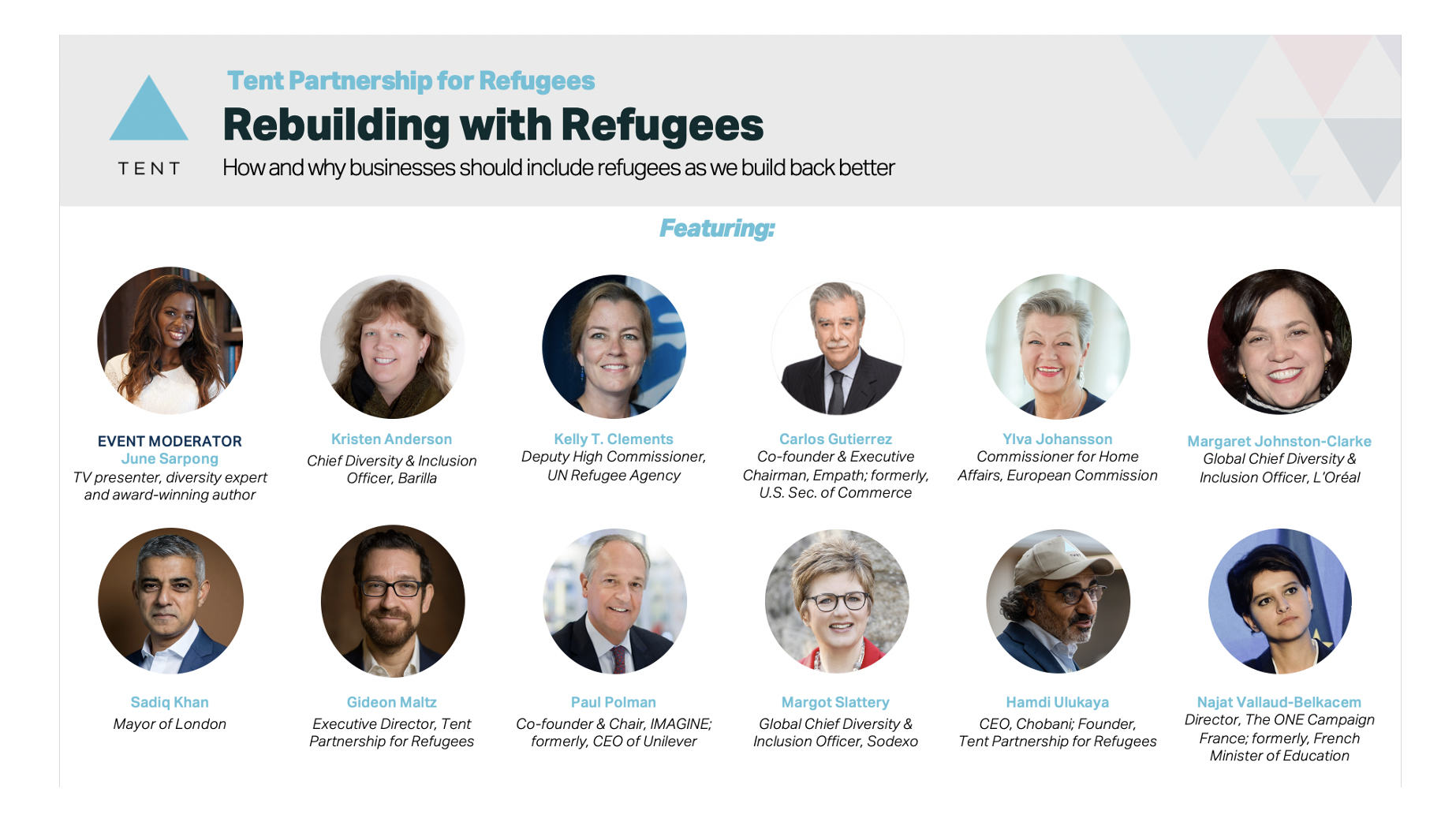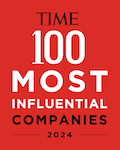Businesses commit to integrating refugees as economies begin to rebuild from Covid-19

The Covid-19 pandemic has threatened to backtrack the progress made by businesses, governments and bilateral agencies on improving the livelihoods of refugees around the world. Within this context, the Tent Partnership for Refugees hosted a virtual event inviting leaders from the business community and public sector for a conversation on the importance of integrating refugees as we rebuild the economy.
As part of the program on October 6, 2020, 28 new companies publicly announced joining the Tent Partnership for Refugees. Chobani CEO and founder of the Tent Partnership for Refugees Hamdi Ulukaya thanked the business community for demonstrating its commitment to including refugees, especially in these challenging times.
“Even though we’re going through difficult times, the number of companies that are joining this effort tells me that we have so much to be hopeful for,” Ulukaya said. “My dream is that we look back on these Covid times and we say that was the time we not only survived, but we transformed.”
The event, moderated by TV presenter, diversity expert and award-winning author June Sarpong, featured a dynamic line-up of speakers including the Mayor of London Sadiq Khan; the IMAGINE founder and former CEO of Unilever Paul Polman; the EU Commissioner Ylva Johansson; and the former U.S. Secretary of Commerce and co-founder and executive chairman of EmPath Carlos Gutierrez, discussing why and how companies should leverage their core operations to support refugees.
A former Cuban refugee himself and successful CEO, Gutierrez spoke to the benefits of seeking out refugee talent to revitalize the workforce.
“If companies reach out and help a refugee, they will have the most hardworking and loyal employee they can imagine,” Gutierrez said.
Polman highlighted how the pandemic has made companies’ social impact even more relevant, as consumers and investors become more attuned to companies’ giving back efforts. Mayor Khan, Commissioner Johansson, and Deputy High Commissioner Clements discussed the vital role of the business community in empowering refugees and integrating them into their host communities, as well as being advocates for more inclusive policies.
“These are examples of successful businesses that do the right thing when it comes to refugees,” Khan said. “I was so pleased to hear business leaders talking about the economic dividend of doing the right thing – hopefully consumers reward good behavior by being customers.”
Later in the program, global leaders on diversity and inclusion from Tent member companies L’Oreal, Sodexo and Barilla discussed how companies can incorporate refugees into their existing diversity and inclusion initiatives –building on hiring, training and employee engagement efforts to include refugees into their new communities.
Margot Slattery, Global Chief Diversity & Inclusion Officer at Sodexo highlighted the success that her company has seen as a result of hiring more than 1,500 refugees. When asked what she would say to companies that are still deciding whether to make refugees a key part of their D&I agenda, Slattery said, “(Refugees) they’re some of the best workers – every refugee I’ve ever worked with, they tend to be the longer stayers and the harder workers, and the people who bring difference. The opportunity is just so big.”
Tent’s Executive Director, Gideon Maltz closed the event saying, “Thank you to the 28 companies with the wisdom to understand that we cannot go back to business as usual and with the courage to stand up publicly today to support refugees… Each day, our coalition grows stronger and more formidable, in service of our mission to integrate refugees into the economy.”
To learn more about “Rebuilding With Refugees: How and why businesses should include refugees as we build back better” and the commitments made that day, head to the full press release at the link below.
Watch the full event recording!
 Tent Named to TIME100 Most Influential Companies List
Tent Named to TIME100 Most Influential Companies List